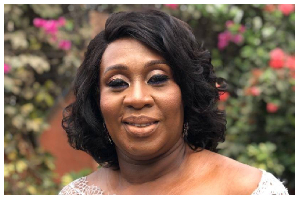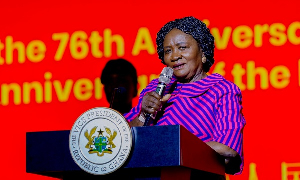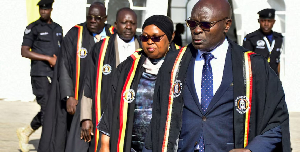The tale of parents selling jewellery and other valuable items just to see their children through school is as real as life itself.
Many families must withdraw their other wards from school immediately one gains entry into the secondary or tertiary level due to financial constraint. Yet these challenges have by no means repelled the rise in the cost of education in Ghana.
Freshmen in KNUST for the 2015/2016 academic year had to pay almost GH¢2000 as regular students and I wonder how much those to be admitted the coming year would pay.
One may wonder why I being a final year student in the same university who, God willing, will be graduating this June should be bothered. But a look at South Africa in 2015 will give us a totally different view.
Students in South African universities led the famous #FEESMUSTFALL and succeeded in making sure that fees were not increased the following year amidst increase in utility and inflation rate. They presented a united student front that sought to protest against rise in fees in South African universities. This could not have been achieved without proper coordination in their leadership.
Back in Ghana, we have seen a gradual increase in the cost of university education and the politics surrounding the introduction of utility tariffs in addition to fees paid. Must we remind NUGS and PUSAG that the struggle will continue but victory will be certain?
Now, to the meat of the matter: In many countries serving your nation is an honour and one can volunteer in many aspects of service to the nation. In some places, it is somewhat dignifying to have served your nation in your lifetime. Others may even want to die while serving their nation as a result of the honour it gives them.
But in Ghana, after completing university and struggling to raise money to see you through, you are first asked to pay GHC40 in order to be posted for national service! Yes, you read it right! One must be ready to pay GHC40 if he or she wants perform his civic duty as a Ghanaian and lend mother Ghana a helping hand in solving the many challenges that confront her. In other words, it is ‘compulsory’ for you to do your national service and also for you to pay before you do it even if it is directing traffic.
I by no means say serving Ghana is not an honour neither am I saying people have not laid down their lives in the cause of making Ghana a great country. How else would we have become independent?When the cost of service to the nation is paid by the citizen using legal tender, it is seen as a business which only offers a certificate after enrolment rather than an honour.
The importance of national service must in no way be overlooked as it strengthens cultural and ethnic ties hence leads to national integration and unity. It in effect leads to nation building. National service grants the individual practical exposure to on the on-the-job training and how to live and work with people from different aspects of society.
I believe everyone must contribute in building Ghana, but to pay to offer service to the nation strips national service of its value and essence. I push for the payment to be scrapped entirely. After all, I know not for what use it is put!
My name is Kotey and I believe in Ghana. Rise we can, but when?
Opinions of Tuesday, 29 March 2016
Columnist: Kotey Edwin














